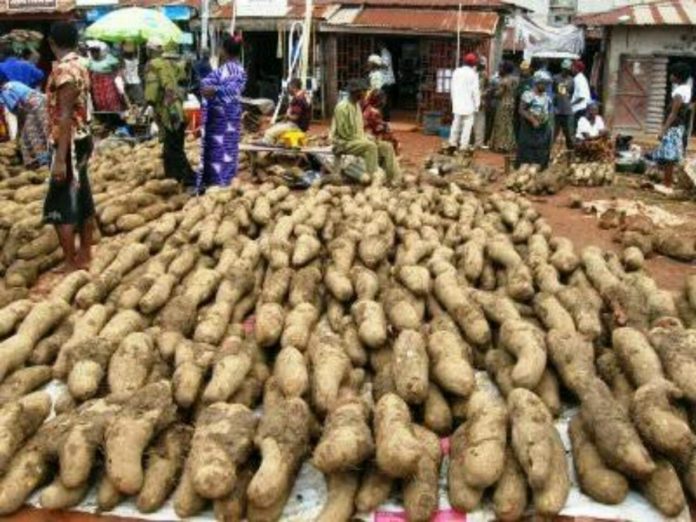To strengthen resilience of communities from the shock of loss of livelihoods, FAO will implement dry season programme across the states of Adamawa, Borno and Yobe in North-East, Nigeria.
Through this programme, around 70,000 farmers’ households representing about 560,000 beneficiaries will receive vegetables seeds, fertilizers and irrigation equipment to bolster their capacity to cultivate crops that will reduce the impact of the food crisis and improve the nutritional requirements of the affected population.
This is part of efforts led by the Government of Nigeria to restore livelihoods and combat critical levels of food insecurity and malnutrition in areas inflicted by Boko Haram violence.
The conflict has displaced some 2.4 million people further deteriorating food security and livelihoods in the light of the already challenging adverse situation in Maiduguri.
The dry season programme is expected to start implementation in October 2017. Support from various donors, including Belgium, the United Nations Central Emergency Response Fund (CERF), the European Civil Protection and Humanitarian Aid Operations (ECHO), Germany, Norway, Sweden, Switzerland and the United States of America (USA) have helped to rebuild livelihood and address food insecurity to combat hunger in North East Nigeria.
“Vegetables like okra, sorrels, roselles and amaranthus mature early. They offer first income generated for vulnerable people, to help them reinvest in farm and non farm activities”, says Nourou Macki Tall, Deputy Representative, Head of the FAO Sub Office in North East Nigeria.
The dry season programme will target vulnerable internally displaced persons (IDPs), returnees and host communities. FAO will work closely with national authorities and international partners. The road map for the implementation of this programme was developed during a workshop held on August 8th, 2017 at FAO’s Maiduguri Sub Office with national authorities and international partners.
“There is a dire need to improve food security of returnees, host communities and internally displaced persons. These efforts will also address critical challenges confronting farmers who face a shortage of agricultural inputs that continue to prolong their reliance on expensive humanitarian assistance”, said Mr. Suffyan Koroma, FAO Representative in Nigeria.
FAO’s interventions during the 2017 raining season benefited about 1 million people and it is expected that dry season intervention will yield similar results.
























